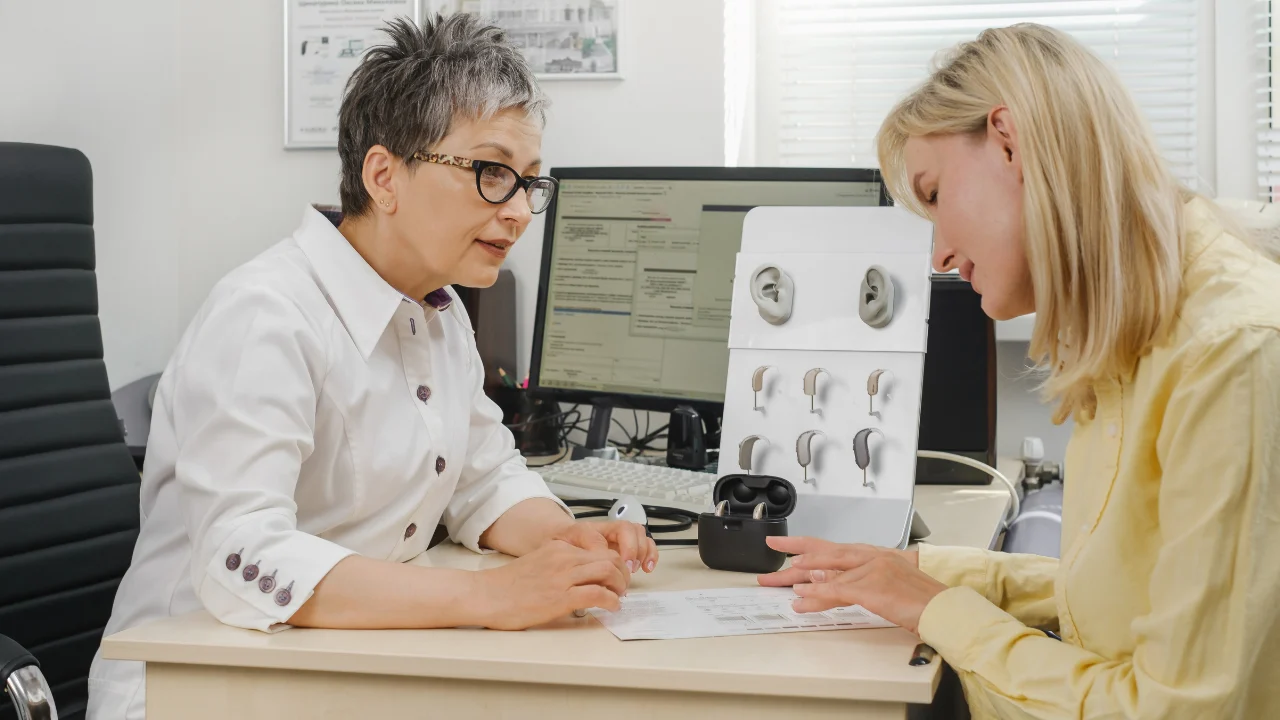
Industrial Deafness – An explanation of workers’ rights, entitlements and the process for claiming compensation
Published on March 13, 2025 by Milena Cugalj and Scott Dougall
Compensation for Hearing Loss in New South Wales
Occupational noise-induced hearing loss is a prominent cause of permanent hearing loss in New South Wales (NSW), and this is commonly referred to as ‘industrial deafness’.
This type of hearing loss is a consequence of prolonged exposure to high noise levels in the workplace.
Unfortunately, your chances of suffering from industrial deafness are heightened if you work, or have worked the industries such as agriculture, construction, entertainment (involving loud music), heavy transportation, manufacturing, mechanics, mining and warehousing.
Symptoms of hearing loss commonly include:
- Issues communicating and hearing in your day-to day life;
- Difficulties hearing in open spaces, such as shopping centres;
- Difficulty talking on the telephone;
- Listening to the television or radio on a higher volume, or constant reliance on subtitles;
- Constant ringing, buzzing and other signs of tinnitus.
If you experience any of the above symptoms, and you work, or have worked, in noisy employment, it may be worth visiting your local audiologist for an audiogram. This should confirm whether you are suffering from hearing loss.
Can I be compensated for industrial deafness?
Under the NSW Workers Compensation scheme, individuals effected by industrial deafness may be entitled to a make a claim for:
- Hearings aids (as well as lifetime coverage for batteries, servicing, maintenance, and replacement); and/or
- Lump sum compensation for permanent impairment.
How can I make a compensation claim for industrial deafness?
Claims for hearing aids and/ or permanent impairment, are made against your ‘last noisy employer,’ and it is that employer’s insurer who will be responsible for determining your claim and providing you compensation where your claim is successful.
However, navigating the NSW Workers Compensation scheme can be difficult, particularly when the workers compensation insurer declines your claim. Therefore, we recommend engaging with a solicitor early on to understand your entitlements.
A lawyer can determine your rights and entitlements, guide you through the NSW workers compensation scheme’s laws, regulations, guidelines and procedures, to assist in reaching a desired outcome.
Hearing aids
To be eligible to claim the cost of hearing aids under NSW Workers Compensation legislation, a worker will need to prove:
- The employment in which they were exposed to noise was at sufficiently high levels to have resulted in hearing loss; and
- The hearing loss is sufficient to require the use of hearing aids.
Where a worker has been exposed to occupational noise across multiple employers, the last noisy employer will be held responsible for the hearing loss.
From a practical perspective, the responsible insurer will usually require the following documents to approve a claim:
- A hearing needs assessment report that includes an audiogram recommending the use of hearing aids;
- A quote for the cost of the hearing aids completed by a hearing service provider who is approved by the State Insurance Regulatory Authority (‘SIRA’).
- A completed workers injury claim form; and
- Proof of employment (when making a claim against a historical employer).
Lump sum compensation for permanent impairment
Additionally, you may be entitled to receive a tax-free, lump sum payment for permanent impairment, where you meet the following criteria:
- For hearing loss claims with a date of injury on or after 1 January 2002: your audiogram demonstrates work-related binaural hearing loss of at least 6%;
- For hearing loss claims with a date of injury on or after 19 June 2012: your audiogram demonstrates work-related binaural hearing loss of at least 20.5%
Your level of permanent impairment (or whole person impairment) must be assessed by an approved Independent Medical Examiner. Your level of permanent impairment will correspond to a lump sum, as determined by the State Insurance Regulatory Authority’s (‘SIRA’) Workers Compensation Benefits Guide [1].
However, a finding of permanent impairment does not automatically mean you will receive a tax-free lump sum. Your claim will need to be either accepted by the responsible insurer or determined in your favour by the Personal Injury Commission.
It is also worth noting that individuals suffering from industrial deafness cannot bring more than one claim for permanent impairment, so it is best to check with your solicitor whether this is the right time for you to make a claim.
Guiding you through the process
At Carroll & O’Dea Lawyers, our dedicated Industrial Deafness team can guide you through a claim for hearing aids and/or claim for lump sum compensation.
A typical claim would involve:
- Having you assessed by an approved Ear, Nose and Throat Specialist (ENT) who would determine whether you:
(a) have sustained occupational induced hearing loss;
(b) require hearing aids as a result of your occupational induced hearing loss; and/or
(c) have sufficient permanent impairment to qualify for lump sum compensation
- Depending on the results of an ENT examination and report, a claim would then be lodged on the workers compensation insurer for hearing aids and / or lump sum compensation.
For claims for hearing aids, the insurer is required to determine your claim within 21 days.
For claims for lump sum compensation, the insurer have up to 2 months to determine your claim, noting this timeframe can be extended if the insurer requires further information and/or requires you to attend an ENT specialist for them as well.
- Where a claim is approved for hearing aids, these can be fitted at your earliest convenience.
Where a claim for permanent impairment is accepted, the corresponding tax-free lump sum compensation is generally paid to you within 4-6 weeks.
Where a claim is declined, we would be required to commence proceedings in the Personal Injury Commission where an impartial Member of the Commission determines your claim.
What about legal costs?
In the majority of cases, your professional fees and disbursements (i.e., the cost of any evidence obtained in furthering your claim) will be covered by the Independent Review Office (IRO). The IRO will provide a grant of funding to cover your legal fees in making and investigating a claim for hearing aids and or permanent impairment, so you don’t pay a cent.
Please note that this article does not constitute legal advice. If you are seeking professional advice on any legal matters, you can contact Carroll & O’Dea Lawyers on 1800 059 278 or via our Contact Page and one of our lawyers will be able to assist you. You can also use our Personal Injury Claim Check at any time here.
[1] https://www.sira.nsw.gov.au/resources-library/workers-compensation-resources/publications/workers-and-claims/Workers-compensation-benefits-guide.pdf
*Guide updated irregularly

